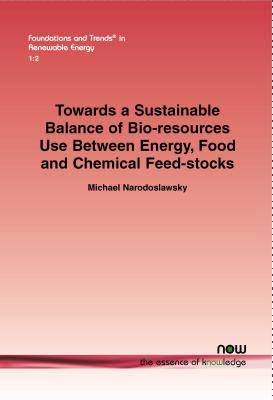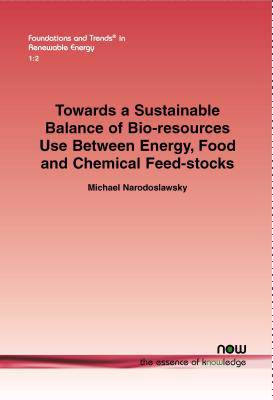
- Afhalen na 1 uur in een winkel met voorraad
- Gratis thuislevering in België vanaf € 30
- Ruim aanbod met 7 miljoen producten
- Afhalen na 1 uur in een winkel met voorraad
- Gratis thuislevering in België vanaf € 30
- Ruim aanbod met 7 miljoen producten
Zoeken
Towards a Sustainable Balance of Bio-Resources Use Between Energy, Food and Chemical Feed-Stocks
Michael Narodoslawsky
€ 68,45
+ 136 punten
Omschrijving
Bio-resources are becoming increasingly important and topical as the world is faced with growing food demand as well as increased pressure to provide energy and materials. This monograph discusses the current flows of bio-resources, their inherent properties and the services that these resources may provide in a sustainable bio-based economy. There are two possible pathways to converting solar radiation, which we can regard as our planet's natural income, into material goods and storable energy carriers: using electricity to generate hydrogen via electrolysis and converting it with CO2 into hydrocarbons, or utilising bio-resources. Most uses of bio-resources compete for limited fertile land, requiring the highest possible efficiency in its use. The natural endowment of land, logistical requirements and economic and cultural factors in their utilisation make bio-resources inherently contextual goods. Decisions about the rational use of bio-resources must therefore be taken with regard to concrete regional contexts. Based on an analysis of services of bio-resources in a bio-based economy, their particular properties, and the characteristics of current state technologies, this monograph develops rules to balance the utilisation of bio-resources in the framework of a regional context.
Specificaties
Betrokkenen
- Auteur(s):
- Uitgeverij:
Inhoud
- Aantal bladzijden:
- 80
- Taal:
- Engels
- Reeks:
- Reeksnummer:
- nr. 2
Eigenschappen
- Productcode (EAN):
- 9781680831948
- Verschijningsdatum:
- 23/11/2016
- Uitvoering:
- Paperback
- Formaat:
- Trade paperback (VS)
- Afmetingen:
- 156 mm x 234 mm
- Gewicht:
- 122 g

Alleen bij Standaard Boekhandel
+ 136 punten op je klantenkaart van Standaard Boekhandel
Beoordelingen
We publiceren alleen reviews die voldoen aan de voorwaarden voor reviews. Bekijk onze voorwaarden voor reviews.











